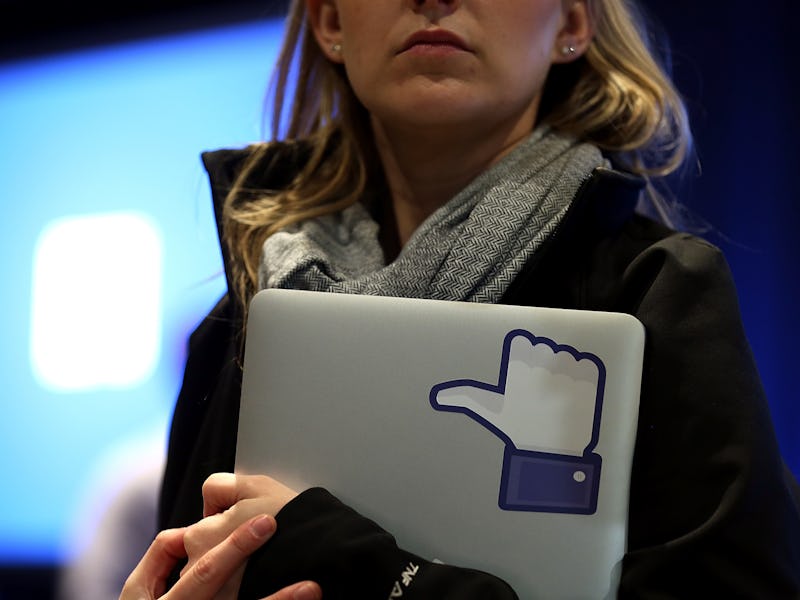Facebook Shareholder: Fake News Fight is "Too Little and Too Late"
"It's simply not' a neutral platform.

At Facebook’s annual shareholder meeting on Thursday, one stockholder called the company’s efforts to resist fake news “too little and too late,” urging it to do more. However, the stockholders as a group voted to allow Facebook to keep fighting the battle in the same way it has been.
Facebook’s fake news problem is well-known, even though it took Mark Zuckerberg forever to admit to it; the company has been taking steps to solve it, like publishing advice on spotting fake news, revamping the trending topics feature, and working with third-party fact checkers to determine the veracity of some content.
But many are unsatisfied with these efforts, including the shareholder Arjuna Capital and Baldwin Brothers Clients. They drafted a proposal that would compel Facebook to issue a report on how fake news on the platform impacts “the democratic process, free speech, and a cohesive society.”
Facebook recommended that stockholders vote against the proposal, saying that it was “unnecessary” because the company was already doing enough to combat the problem.
Before the vote, Natasha Lamb gave a powerful statement in favor of the proposal on behalf of Arjuna and Baldwin, exposing the inadequacy of some of Facebook’s current problem-solving tactics.
Facebook now makes “related articles” lists appear before you click on an article to give users “easier access to additional perspectives,” i.e. expose them to content that doesn’t just confirm their preexisting beliefs. Lamb seemed to refer to this when she stated, “Fake news is not about spin or confirmation bias, it’s about fabrication.” She went further: “While our company has recently announced some steps to deal with the problem, they are a bit too little and too late.”
"A MEDIA company? Ha, ha, ha. We are no such thing."
Facebook stubbornly refuses to call itself a media company. Lamb calmly shattered this notion:
“And while our company defines Facebook’s business as a neutral technology platform, it’s simply not. With nearly two-thirds of adults getting their news from Facebook, it’s clear: Facebook is a media platform which now controls the conversation, a conversation that can be manipulated at scale through the propagation of fake news.”
Lamb also noted that “better education” and “a simple algorithm tweak” — Facebook’s aforementioned fake news PSA and educational “News Integrity Initiative,” and its demotion of disputed stories down the news feed — are not enough to fight the complexity of the fake news phenomenon.
However, her words were in vain: The shareholders voted to reject the proposal by an “at least requisite majority” (the vote tally was not disclosed).
It’s great that Facebook has been taking steps to fight fake news. But the company’s determination to avoid issuing a report — which would have increased transparency about the solution process and possibly led the public to pressure the company to do more — shows that Facebook still doesn’t acknowledge the full gravity of the problem.